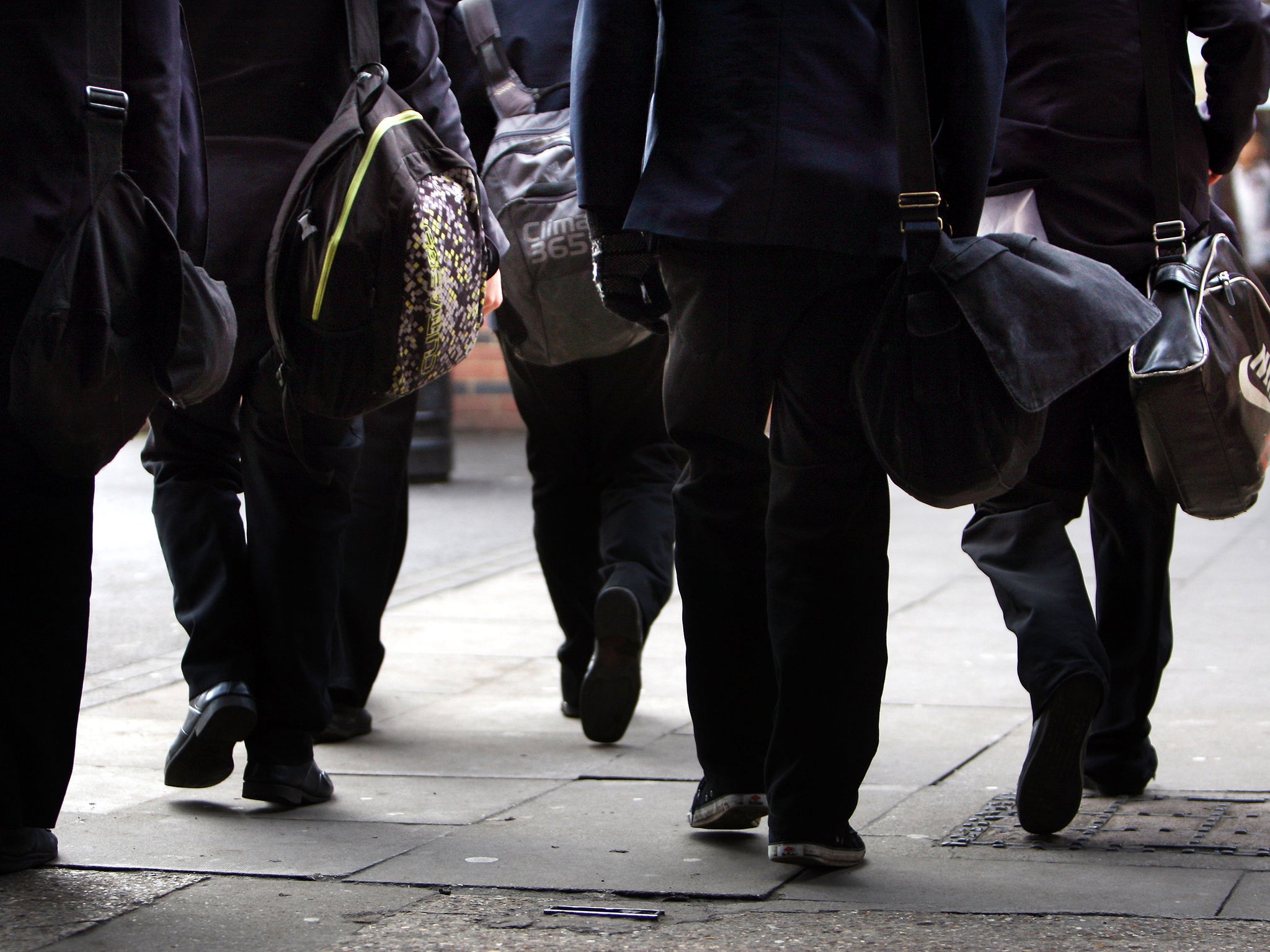Teachers biased against black pupils and white boys from underprivileged backgrounds, report says
Biases affect setting, teacher assessment outcomes, and disciplinary measures in schools, report concludes

Teachers in London are biased against black Caribbean and white boys from poorer backgrounds, new research suggests.
Education think tank LKMco is calling for urgent steps to be taken to tackle the impact of social inequality on the two groups’ academic achievements.
Unconscious prejudices affect the way they are disciplined at school, how their work is assessed, and the academic ability set that they are put in, its study found.
It said black Caribbean boys’ attainment in London is 17 percentage points behind the London average for expected standards in reading, writing and maths by the end of primary school.
While white male pupils eligible for free school meals are the lowest-attaining of the main ethnic groups in the capital — and the attainment gap widens as they move through secondary school.
The report, which includes interviews with experts, teachers and pupils, calls for teachers and school leaders to be given the training to help minimise the impact of unconscious bias.
It says: “Currently biases may affect black Caribbean and white free school meal-eligible boys’ experiences at school, where they impact upon areas such as setting and streaming, teacher assessment outcomes, and disciplinary measures such as exclusions.
“Early Years, school and college practitioners could benefit from increased access to quality guidance, support and training that will help them explore – and minimise the impact of their biases. Thus far, limited work has been undertaken in London on this issue.”
Young people interviewed for the study – especially black Caribbean boys – said they felt teachers’ assumptions about them had marred their experiences at school.
One young person said: “I just feel like it’s a lot to do with … stereotyping [of] the actual students before they (teachers) even know what they (pupils) really are [like].
“So, while you’re treating them how you perceive them, they’re actually taking on the characteristics of what they think [they] are.”
Another young person said they felt teachers picked on black students, as well as Asian students and those from an Eastern European background, and put them in isolation more frequently.
David Gillborn, professor of critical race studies at the University of Birmingham, who was interviewed for the study, said academic performance, expectations about behaviour, and race are more likely to impede black boys.
He said: “White people tend to have very different expectations of Indian and Chinese and black Caribbean kids.
“[Research indicates that] if a Chinese student age 14 is being predicted a C in science, the teacher will very often see that as they’re underachieving … whereas the black Caribbean kid who’s predicted that same C grade would tend to be told, ‘Oh, you’re doing alright. You’re going to pass. It’s going to be fine.’ They won’t get any of the extra push.”
The study highlights research showing that non-black teachers can have lower expectations of black students and they are more likely to negatively judge pupils from minority ethnic backgrounds.
The report calls for more research into the impact of unconscious bias and teachers’ expectations on educational outcomes across London, and the impact it has on disadvantaged groups.
It also calls for schools, mental health services and youth workers to work together to support the emotional wellbeing of this group of young people.
Joanne McCartney, deputy mayor for education and childcare, said: “These findings show the importance of schools, youth workers and mental health services working together to ensure we give all children the best possible start in life.
“We will use these findings to work with schools and other frontline services so that they can help all young people in the capital reach their full potential.”
Will Millard, lead author of the report, said: “This is not just something for schools to think about; the research shows how important it is for practitioners working in different settings and sectors across London to pull together.”
Geoff Barton, general secretary of the Association of School and College Leaders, said: “People should be reassured that schools are utterly committed to treating all their pupils equally and fairly.
“As places which are committed to promoting equality, they will welcome this research into unconscious bias and any proposals to tackle this issue. The more we understand unconscious bias, the better able we will be to reduce its impact.”
Join our commenting forum
Join thought-provoking conversations, follow other Independent readers and see their replies
Comments